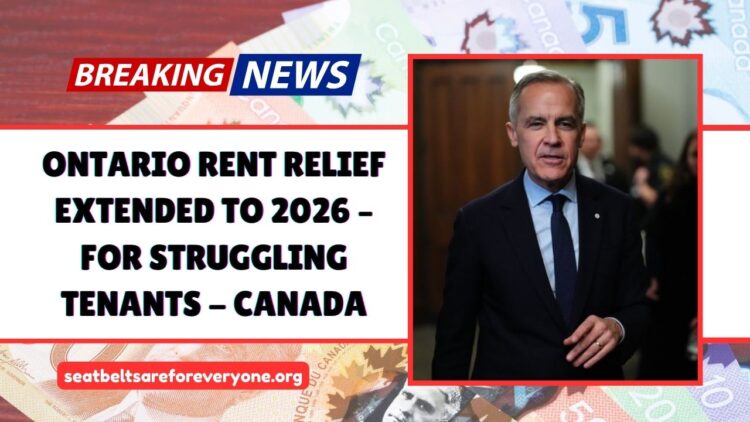With rent prices climbing and inflation squeezing households, the Ontario has confirmed the extension of its Rent Relief Program until March 2026. This policy is expected to benefit thousands of tenants in cities like Toronto, Ottawa, and Hamilton, where rent affordability has become a pressing issue.
The extension is part of Ontario’s Affordable Housing Strategy, ensuring that low-income families, seniors, and vulnerable renters continue receiving support when they need it most.
About the Ontario Rent Relief Program
The Ontario Rent Relief Program started during the COVID-19 pandemic as an emergency response to help tenants cover housing costs. Over time, it grew into a structured support system offering monthly rent assistance and emergency eviction prevention grants.
The 2025–2026 extension strengthens the program further, aiming to reduce homelessness risks, improve housing security, and ease the financial burden of low- to moderate-income renters.
Key Features of the 2025–2026 Extension
| Feature | Details |
|---|---|
| Program Duration | Extended through March 2026 |
| Monthly Assistance | Up to $500/month for eligible tenants |
| Emergency Grants | One-time support to prevent eviction |
| Simplified Application | Easier renewal process for past recipients |
| Priority Groups | Seniors, families with children, and persons with disabilities |
This update ensures that those at highest risk of housing instability are prioritized.
Eligibility Requirements
To qualify for the Ontario Rent Relief Extension, tenants must meet certain conditions:
- Income Limit:
- Less than $45,000/year for individuals
- Less than $70,000/year for families
- Residency: Must live in Ontario with a valid lease agreement.
- Rent Burden: Spending 30% or more of monthly income on rent.
- Special Consideration: Households with children, disabilities, or risk of eviction receive priority.
This targeted approach ensures the program reaches those in greatest need.
How to Apply or Renew in 2025
Applying for the extended program has been made simpler for 2025:
- Visit the Ontario Housing Ministry website.
- Fill in the Rent Relief Application Form.
- Submit proof of income, lease documents, and ID.
- Send the application online or through your municipal housing office.
For those already enrolled in 2024, the renewal process is faster—many only need to update income details. Processing times typically take 2–4 weeks, depending on municipality demand.
Why This Matters for Ontario Tenants
The rent relief extension is a major step in tackling Ontario’s housing crisis. Alongside financial aid, the government has also pledged funding for affordable housing construction, rent-geared-to-income subsidies, and eviction prevention services.
Key Impacts:
- Lower chance of homelessness.
- Better housing affordability for vulnerable renters.
- Added support for seniors, families, and people with disabilities.
- Relief for households hit hardest by inflation and rent hikes.
This extension signals the province’s long-term commitment to addressing housing instability.
Ontario’s 2026 Rent Increase Guideline
In addition to rent relief, Ontario has capped the 2026 rent increase guideline at 2.1%, preventing landlords from raising rents beyond this percentage. This rule applies to increases issued between January 1 and December 31, 2026, giving tenants extra protection from sudden hikes.
The Ontario Rent Relief Extension to 2026 is more than just financial aid—it’s a lifeline for renters struggling to stay afloat in an expensive housing market. With up to $500/month, emergency eviction grants, and a simplified renewal process, the program ensures that thousands of Ontarians can maintain stable housing through these tough economic times.
If you are a renter spending too much of your income on rent, now is the time to check eligibility, apply early, and secure this crucial support.
FAQs
Low-income renters spending 30% or more of their monthly income on rent. Priority goes to seniors, families with children, and those with disabilities.
Eligible renters can get up to $500 per month until March 2026, plus one-time eviction prevention grants.
Yes, but the process is easier. Most returning applicants only need to update income details and confirm their lease.

